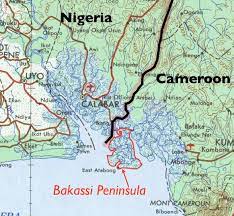Nigeria and Cameroon have agreed to return to the International Court of Justice’s (ICJ) for clarification of some grey areas in its judgment on the dispute between both countries over the ownership of the Bakassi Peninsula.
The ICJ, in a judgment on October 10, 2002 upheld Cameroon’s claim to the area.
At the 24th session of the Cameroon-Nigeria Mixed Commission (CNMC) held between 25th and 26th August, 2022 in Abuja, it was observed that both countries do not have equal understanding of the ICJ judgement on the course of the boundary on localities of Rhoumski, Pillar 8 and Koja.
Parties then agreed to table discussions on the matter to the ICJ for clarification of its decision.
Read also
- Why Obasanjo Handed Bakassi Over To Cameroon — Adoke
- Boko Haram Hinders Demarcation Of Nigeria, Cameroon Border – UN
- Bakassi Deep Seaport Moves Ahead, Tames Ibaka
This formed part of the resolutions at the session, as captured in a Communique issued by Nigeria.
Nigeria and Cameroon expressed commitment to work closely to identify and encourage the implementation of trans-border infrastructural projects to enhance the economic cooperation and integration of both countries and the West African sub-region.
The Mixed Commission recommended that the two parties finalise the agreement on the joint exploitation of the hydrocarbon along the maritime border.
Both countries commended the sub-commission on Demarcation and the Joint Technical Team for reaching an agreement on the course of the boundary in Mabas village and the project steering committee and the technical monitoring team for successful construction of additional 327 pillars in Alantika Mountains, which has been endorsed by Mixed Commission.
The Nigerian team to the session was led by the Attorney-General of the Federation (AGF) and Minister of Justice, Abubakar Malami, his spokesman, Dr. Umar Jibrilu Gwandu said in a statement on Saturday.
Gwandu quoted Malami as expressing Nigeria’s determination to ensure that the limited areas of border disagreement between both countries are resolved amicably.
“Nigeria is committed to the quick and successful execution of the mandates of the Mixed Commission,” Malami said, noting that the areas of disagreement had been reduced to just three.
Malami urged experts working on the issue to “embrace pragmatism in order to reach consensus in all the three areas of disagreement,” hoping that “amicable solutions would be found as soon as possible to enable the work be completed.”

